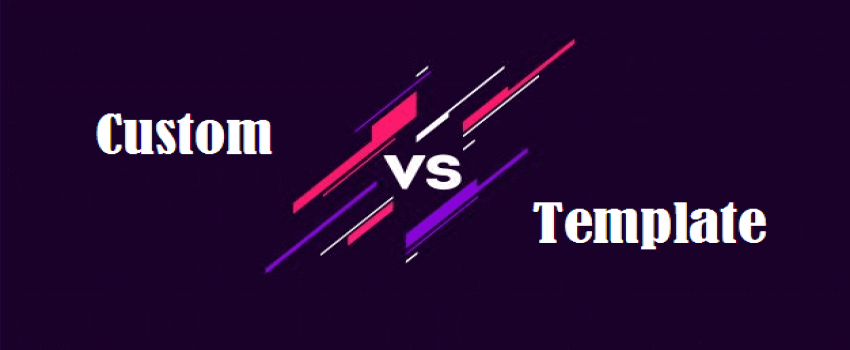Top 10 Content Management Systems for Websites

In the ever-evolving digital landscape, an effective online presence is crucial for businesses and individuals alike. One of the core elements of this online presence is the website. To manage the content on your website efficiently, you need a reliable Content Management System (CMS). A CMS is a web-based application that enables users to create, edit, and publish digital content effortlessly. It simplifies website management, making it accessible to users with varying technical expertise.
Whether you are a blogger, a small business owner, or part of a large enterprise, choosing the right web CMS platform is essential. With a plethora of options available, it can be challenging to select the best one for your specific needs. In this article, we will explore the top 10 content management systems for websites, helping you make an informed decision.
1. WordPress
WordPress is one of the most popular and widely-used content management systems globally, and for good reason. It's user-friendly, highly customizable, and offers a vast library of plugins and themes. Whether you're creating a personal blog or a complex e-commerce site, WordPress can accommodate your needs. Its extensive community support and regular updates make it a top choice for beginners and experts alike.
2. Joomla
Joomla is another powerful open-source CMS that strikes a balance between user-friendliness and flexibility. It's known for its robust set of features, making it suitable for creating intricate websites, including online magazines, e-commerce platforms, and community-based sites. Joomla has a strong developer community, ensuring that you have access to a wealth of extensions and templates.
3. Drupal
For those in need of a highly customizable and scalable CMS, Drupal is an excellent choice. It's favored by developers and large organizations due to its ability to handle complex content structures and workflows. Drupal's modules and themes offer a high degree of flexibility, making it suitable for various purposes, from corporate websites to educational platforms.
4. Wix
Wix is a user-friendly, cloud-based CMS that is perfect for beginners. It offers an intuitive drag-and-drop interface, allowing users to create visually appealing websites with ease. While it may not be as flexible as some other CMS options, Wix is an excellent choice for small businesses and individuals looking to establish an online presence quickly.
5. Squarespace
Squarespace is a user-friendly, all-in-one website builder and CMS. It's known for its elegant and visually appealing templates, making it ideal for creatives, artists, and businesses looking to showcase their work in a visually stunning manner. Squarespace handles hosting, security, and updates, making it hassle-free for users.
6. Shopify
If you're primarily focused on e-commerce, Shopify is an excellent CMS choice. It's designed specifically for online stores and offers a wide range of features, including inventory management, secure payment processing, and customizable templates. Shopify's user-friendly interface makes it accessible to both small businesses and large enterprises.
7. Magento
Magento is another CMS tailored for e-commerce, but it's more suitable for large-scale enterprises. It provides robust features for managing products, handling transactions, and scaling your online store. While it may have a steeper learning curve, Magento is a powerhouse for businesses seeking a comprehensive e-commerce solution.
8. Ghost
Ghost is a CMS designed specifically for bloggers and publications. It offers a clean and minimalist writing environment, making it ideal for content creators who want to focus on producing high-quality articles. Ghost is known for its speed and simplicity, making it a great choice for bloggers looking to enhance their online presence.
9. Blogger
Blogger is a free CMS offered by Google. It's perfect for individuals and hobby bloggers who want to get started quickly. While it may not have as many features as other CMS options, Blogger is straightforward and integrates seamlessly with other Google services. It's an excellent choice for those looking for a simple blogging platform.
10. TYPO3
TYPO3 is a powerful open-source CMS with a focus on scalability and security. It's widely used in the corporate world and by government agencies due to its robust content management capabilities. TYPO3's flexibility allows you to create complex websites with intricate content structures and workflows.
Conclusion: The choice of a content management system for your website depends on your specific needs and technical expertise. WordPress, Joomla, and Drupal are versatile options suitable for a wide range of websites. If you're looking for simplicity, Wix and Squarespace are excellent choices. For e-commerce, Shopify and Magento cater to different scales of businesses. Ghost is perfect for bloggers, while Blogger is a straightforward free option. TYPO3 is ideal for enterprises with complex requirements.
When choosing a CMS, factor in your website's objectives, technical proficiency, and necessary features. Opting for the right one enables streamlined content management and a captivating online presence. Whether you're a novice or seasoned developer, one of these top 10 content management systems is poised to meet your website's requirements adeptly. Consider consulting with a web development company for expert guidance in selecting the ideal CMS.
Related to this
Let's Discuss Your Project











